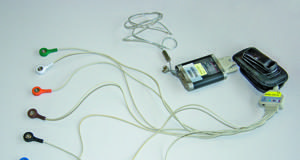Shedding Light On Why Omega-3 Fatty Acids May Help the Heart
The greater the consumption, the less shrinkage of chromosome component, research shows. Scientists think they have uncovered at least one of the reasons why omega-3 fatty acids are good for your heart. The more omega-3 that patients with coronary heart disease consumed, the slower...
Cooling Inflammation For Healthier Arteries
Agricultural Research Service (ARS)-funded scientists have reported new reasons for choosing "heart-healthy" oats at the grocery store. Nutritionist Mohsen Meydani, director of the Vascular Biology Laboratory at the Jean Mayer USDA Human Nutrition Research Center on Aging at...
Seasonal Flu Vaccine Lowers Risk Of First Heart Attack, Study Finds
The seasonal flu vaccine is associated with a 19% reduction in the rate of first heart attack and early vaccination in the fall further increases the benefits, found a study published in CMAJ (Canadian Medical Association Journal).
New Method For Preventing Oxidative Damage To Cells: Findings Could Lead...
The discovery by UCLA biochemists of a new method for preventing oxidation in the essential fatty acids of cell membranes could lead to a new class of more effective nutritional supplements and potentially help combat neurodegenerative disorders such as Parkinson's disease and perhaps Alzheimer's.
Elevated Glucose Associated With Undetected Heart Damage
A new study led by researchers at the Johns Hopkins Bloomberg School of Public Health suggests that hyperglycemia (high blood sugar) injures the heart, even in patients without a history of heart disease or diabetes. Researchers found that elevated levels of glycated hemoglobin (HbA1c), a marker for chronic hyperglycemia and diabetes, were associated with minute levels of the protein troponin T (cTnT), a blood marker for heart damage.
Calorie-Restricted Diet Keeps Heart Young
People who restrict their caloric intake in an effort to live longer have hearts that function more like those in people who are 20 years younger. Researchers at Washington University School of Medicine in St. Louis have found that a key measure of the heart's ability to adapt to physical activity, stress, sleep and other factors that influence the rate at which the heart pumps blood, doesn't decline nearly as rapidly in people who have significantly restricted their caloric intake for an average of seven years.
Studies Question Heart Bypass, Angioplasty Method
Two new studies could change care for hundreds of thousands of heart patients each year. One finds that bypass surgery has been overrated for many people with very weak hearts from clogged arteries and previous heart attacks. The other challenges the way artery-opening procedures have been done for decades.
New Way To Abate Heart Attacks Before Patients Get To The...
Paramedics can reduce someone's chances of having a cardiac arrest or dying by 50 percent by immediately administering a mixture of glucose, insulin and potassium ("GIK") to people having a heart attack, according to research presented March 27 at the American College of Cardiology's 61st Annual Scientific Session.
Ultrasound And A Blood Test Can Increase Survival After Myocardial Infarction
Two relatively simple methods, an ultrasound investigation and a blood test to measure the level of a substance known as BNP, can predict survival and future heart failure following acute coronary syndromes. This is the conclusion of a thesis presented at the University of Gothenburg, Sweden.
Common Painkillers Linked To Increased Risk Of Heart Problems
The drugs include traditional non-steroidal anti-inflammatory drugs (NSAIDS) as well as new generation anti-inflammatory drugs, known as COX-2 inhibitors. The researchers say that doctors and patients need to be aware that prescription of any anti-inflammatory drug needs to take cardiovascular risk into account.
Statins: Benefits Questionable In Low-Risk Patients, Review Finds
There is not enough evidence to recommend the widespread use of statins in people with no previous history of heart disease, according to a new Cochrane Systematic Review. Researchers say statins should be prescribed with caution in those at low risk of cardiovascular disease (CVD).
Happiness Is ‘Infectious’ In Network Of Friends: Collective — Not Just...
If you're happy and you know it, thank your friends—and their friends. And while you're at it, their friends' friends. But if you're sad, hold the blame. Researchers from Harvard Medical School and the University of California, San Diego have found that "happiness" is not the result solely of a cloistered journey filled with individually tailored self-help techniques.














